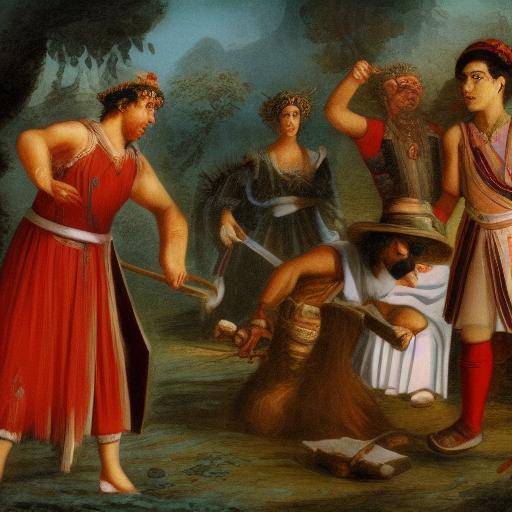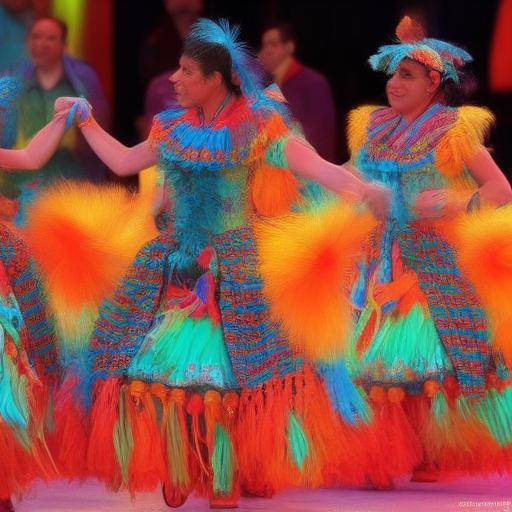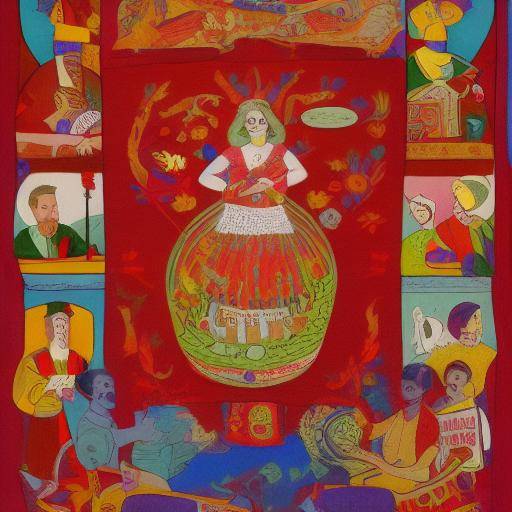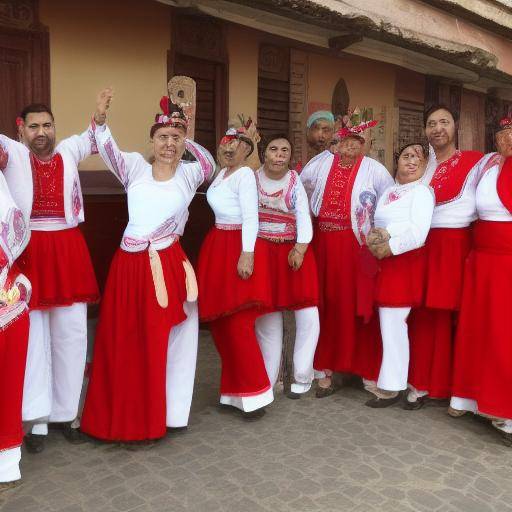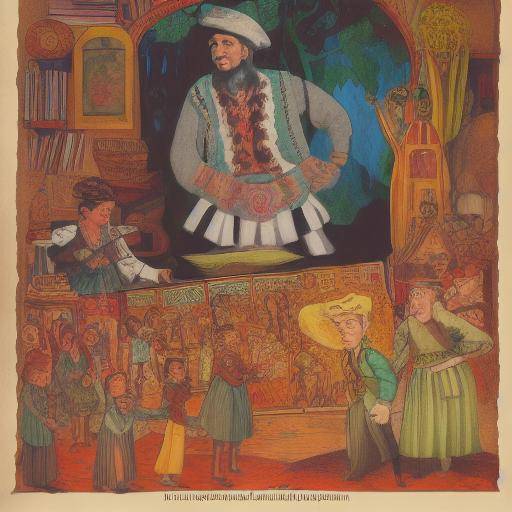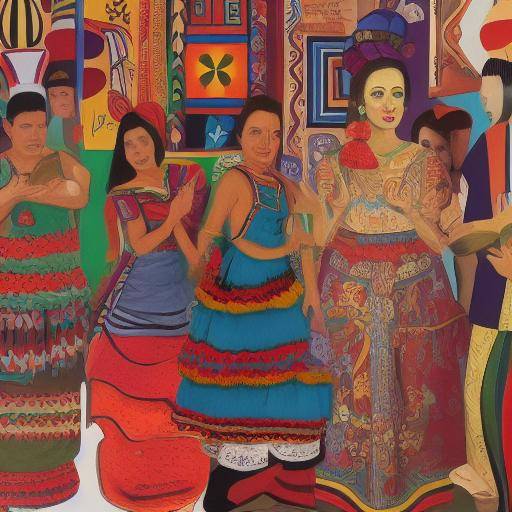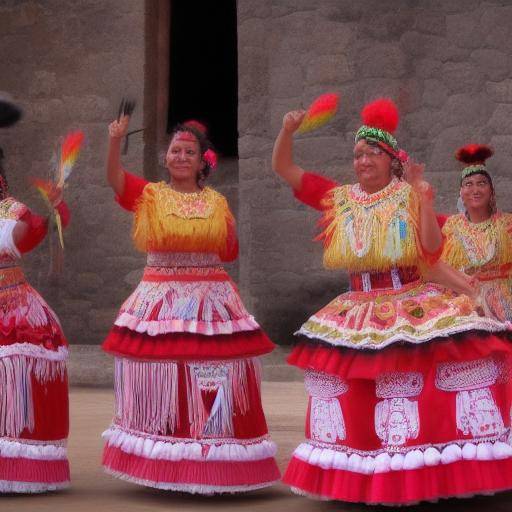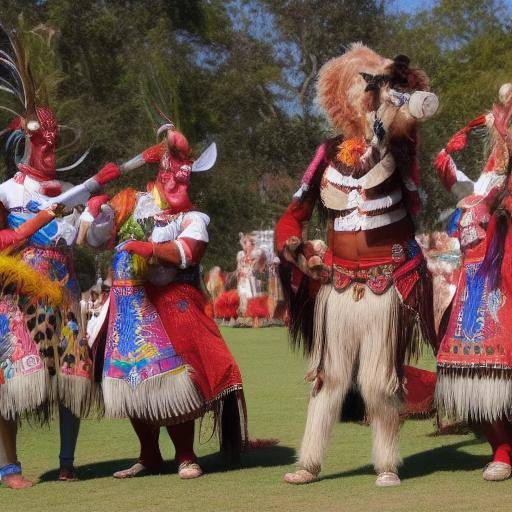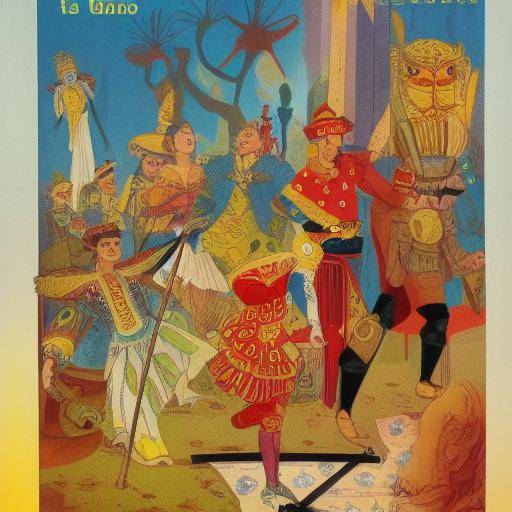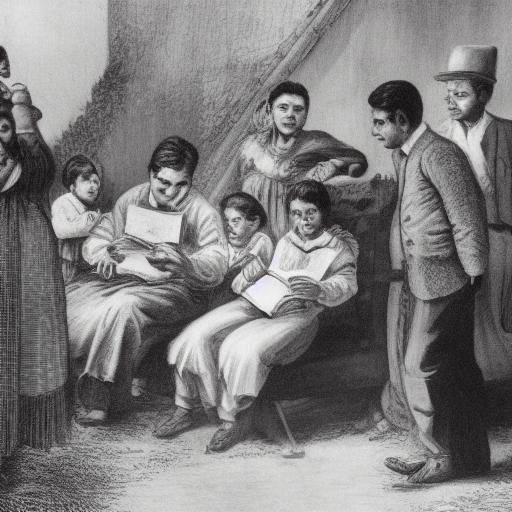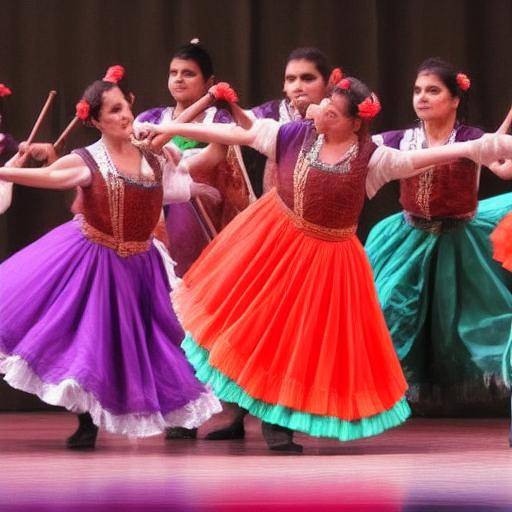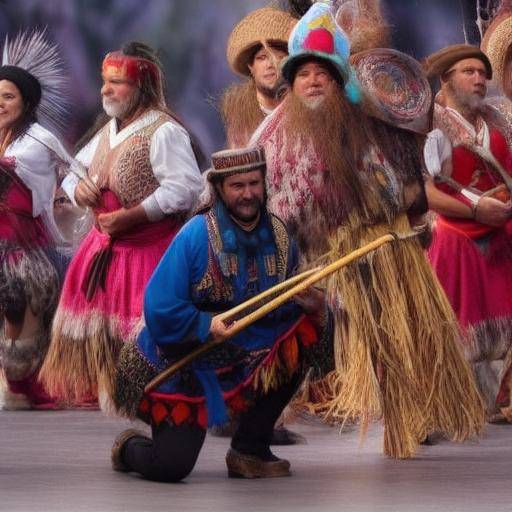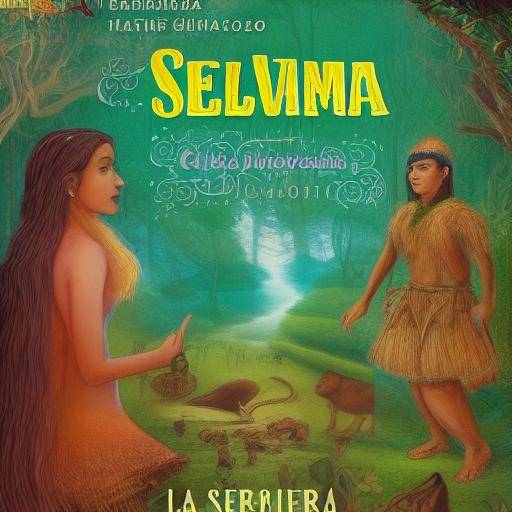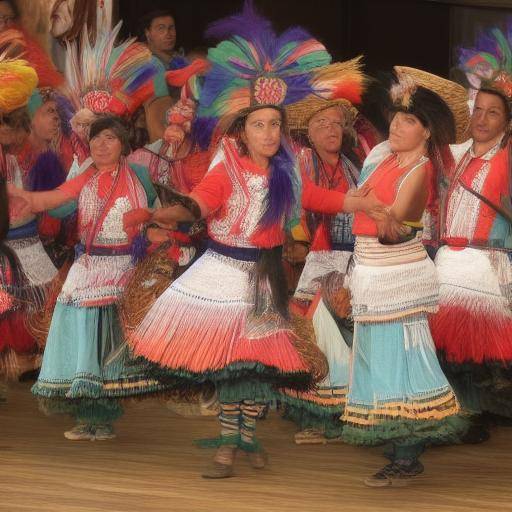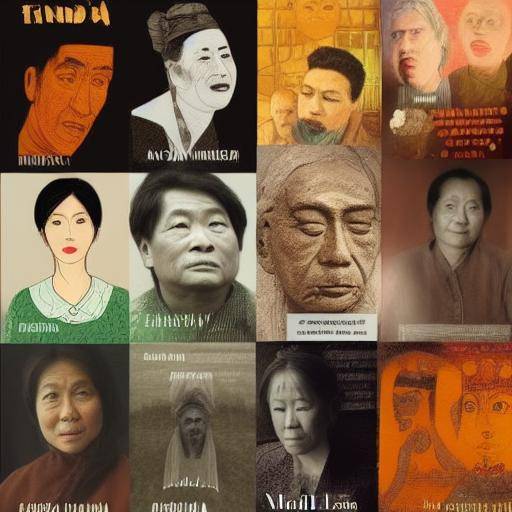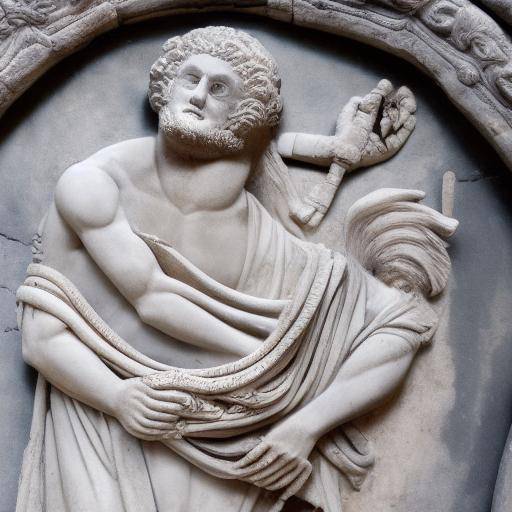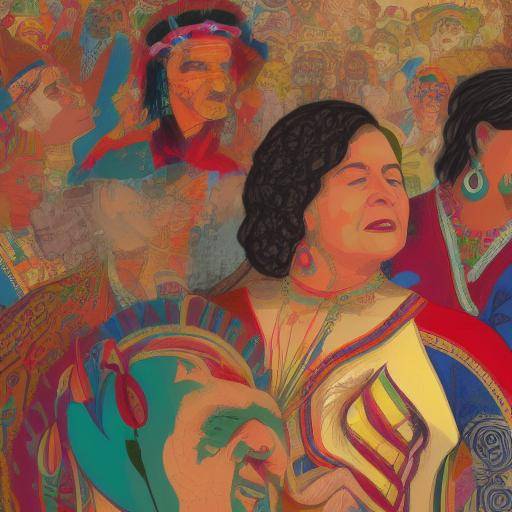
The rich tradition of South American folklore has significantly influenced contemporary literature, leading to a fusion of cultures, myths and legends that have enriched the literary works of the region. In this article, we will explore how South American folklore has permeated contemporary literature, the influences it has had on writers and the relevance of this cultural fusion in the current context. From its origins to current trends, we will deepen this fascinating link between South American folklore and contemporary literature.
Introduction
South American folklore is a treasure of stories, myths and traditions that have been transmitted from generation to generation, enriching the cultural identity of the region. The contemporary literature, for its part, has been nourished by this cultural heritage, incorporating elements of folklore in plots, characters and settings. In this sense, the influence of South American folklore in contemporary literature is a fascinating phenomenon that has led to deeply rooted works in the identity and history of the region.
History and Background
South American folklore has its roots in the indigenous, African and European traditions that intertwined on the continent, creating a rich tapestry of myths, legends and traditions. The arrival of the European conquerors and the subsequent mestizaje led to a synthesis of cultures that was reflected in the artistic and literary manifestations of the region.
Contemporary literature in Latin America has been shaped by these influences, giving rise to a unique expression that combines the vision of the indigenous world, African traditions and European heritage. Authors like Gabriel García Márquez, Pablo Neruda and Jorge Luis Borges, among many others, have incorporated elements of South American folklore into their works, thus enriching the literary panorama.
Analysis in Deep
The fusion of South American folklore and contemporary literature has allowed writers to explore universal themes such as love, death, nature and cultural identity through unique and fascinating lenses. The symbolic wealth of folk traditions has provided the authors with a vast repertoire of metaphors and motives, enriching their literary creations with unmatched depth and authenticity.
In addition, contemporary literature has helped to preserve and spread the manifestations of South American folklore, providing a means for these traditions to perpetuate collective consciousness and transcend the barriers of time and space.
Comprehensive review
The interlacing of South American folklore and contemporary literature has led to a diverse and constantly evolving literary corpus. From the magical narrative of authors like Isabel Allende to the poetry of contemporary authors such as Gioconda Belli, South American folklore has provided a rich thematic and stylistic substrate that has enriched contemporary literature.
The use of archetypes, symbols and motifs of folklore has allowed writers to create unique literary universes that have captivated both local and international audiences. This cultural amalgam has transcended borders, enriching the global literary heritage with unique and enriching perspectives.
Comparative analysis
By comparing South American folklore to contemporary literature, the richness of shared elements becomes evident, as well as the particular interpretations and reconfigurations that writers have given to these traditions. The constant intertextuality between folklore and contemporary literature marks a synergy that nourishes and enriches both individual works and literary corpus as a whole.
The capacity of contemporary literature to reinterpret and reimagine the myths and legends of South American folklore has kept tradition alive and has led to works that explore identity, the struggle for justice, resistance and hope from unique and deeply rooted perspectives in the South American worldview.
Practical Tips and Accessible Tips
For writers who wish to incorporate South American folklore into their works, it is essential to immerse themselves in the traditions, myths and legends of the region, understanding its meaning in the historical and cultural context. Minute research and respect for popular narratives are the basis for creating authentic works that honor the rich heritage of South American folklore.
Industry Perspectives and Expert Reviews
According to renowned critics and experts in literature, the influence of South American folklore in contemporary literature has allowed a renewal of the themes and narrative aesthetics in the region. This approach has consolidated South American authors as references to universal literature, providing a unique and enriching view of the global literary landscape.
Case Studies and Real Life Applications
Works like "Cien años de sol" by Gabriel García Márquez, "La Casa de losspirits" by Isabel Allende and "El Señor Presidente" by Miguel Ángel Asturias are representative examples of the influence of South American folklore in contemporary literature, showing how popular traditions intertwine with literary creativity to give rise to timeless and profoundly significant works.
Future Trends and Predictions
As contemporary literature continues to evolve, it is likely that the influence of South American folklore remains an inexhaustible source of inspiration for writers, both in Latin America and elsewhere in the world. The exploration of cultural roots and their connection to contemporary reality promises to further enrich the global literary landscape with works that transcend borders and find echo in avid readers of new perspectives and narrative approaches.
Conclusion
The symbiosis between South American folklore and contemporary literature has led to a rich and diverse literary corpus that reflects the identity, struggles and longings of the region. The influence of South American folklore in contemporary literature is a constantly evolving phenomenon, enriching the literary panorama with works that transcend the barriers of time and space to connect with readers of all latitudes.
This link between South American folklore and contemporary literature not only enriches literary production, but also strengthens cultural ties and transcends borders, providing a unique and enriching view of the world from the South American perspective.
Frequently asked questions
What is the importance of South American folklore in contemporary literature?
South American folklore provides an incomparable wealth of myths, legends and traditions that enrich contemporary literature with a layer of authenticity and universality.
How can contemporary writers incorporate South American folklore into their works?
Contemporary writers can immerse themselves in the research of South American folklore, understand their meanings and reinterpret them in a respectful and creative way in their works.
What are some representative works that illustrate the fusion of South American folklore and contemporary literature?
"Cien años de sol" by Gabriel García Márquez, "La Casa de losspirits" by Isabel Allende and "El Señor Presidente" by Miguel Ángel Asturias are outstanding examples of this literary fusion.
How does South American folklore influence the narrative and themes addressed in contemporary literature?
South American folklore provides contemporary writers with a vast repertoire of symbols, metaphors and motives that enrich the narrative and explore universal themes from a specific cultural perspective.
What are some future trends in the interaction between South American folklore and contemporary literature?
Contemporary literature is expected to continue exploring South American folklore in the future, using new perspectives and narrative approaches to keep alive the rich cultural tradition of the region.
How has the influence of South American folklore impacted on contemporary literature globally?
The influence of South American folklore has enriched contemporary literature globally by providing a unique and enriching perspective that transcends cultural borders and finds echo in readers of all latitudes.
What is the role of contemporary literature in the preservation and dissemination of South American folklore?
Contemporary literature plays a crucial role in the preservation and diffusion of South American folklore by offering a means for these traditions to perpetuate collective consciousness and transcend the barriers of time and space.
In short, the fusion of South American folklore and contemporary literature is a constantly evolving phenomenon that has led to a diverse and enriching literary corpus. This union has enriched the literary panorama with works that transcend the barriers of time and space to connect with readers of all latitudes, consolidating South American literature as a unique and meaningful voice on the global stage.

